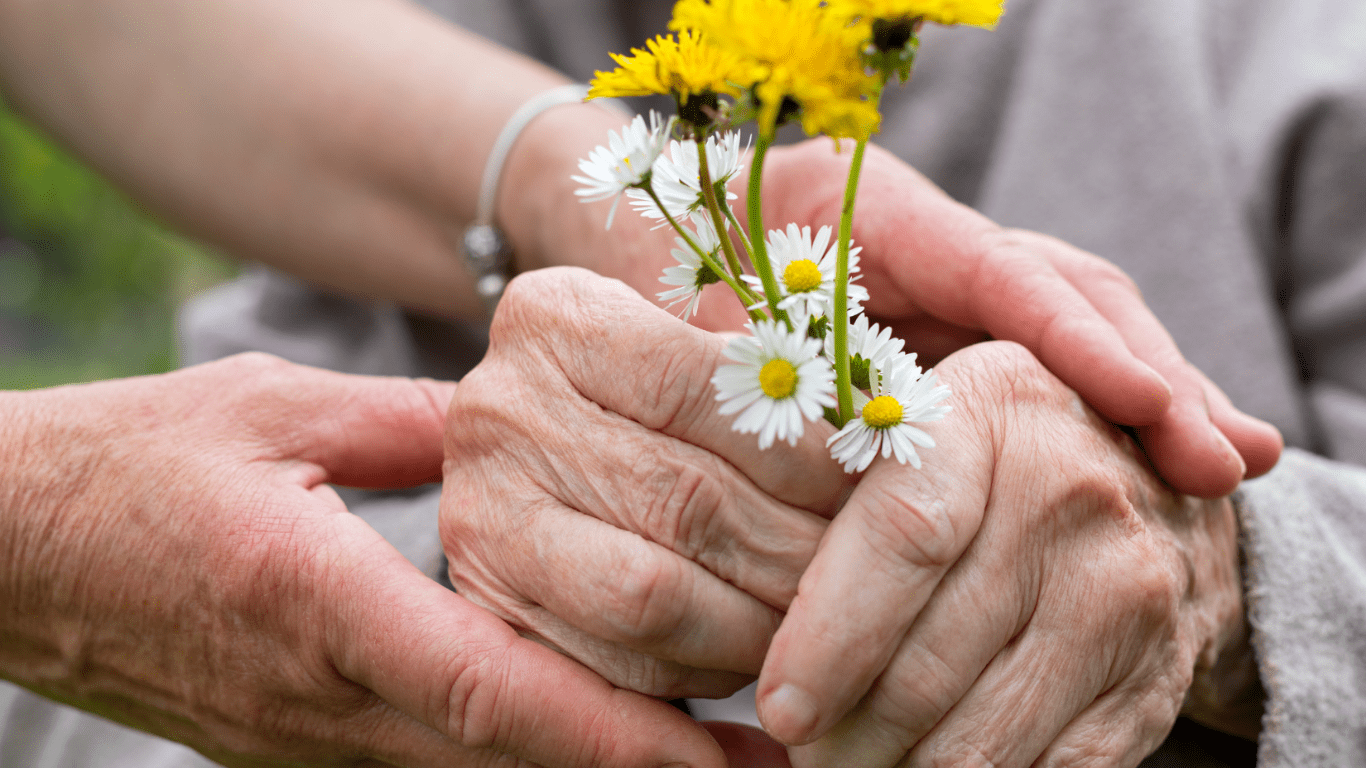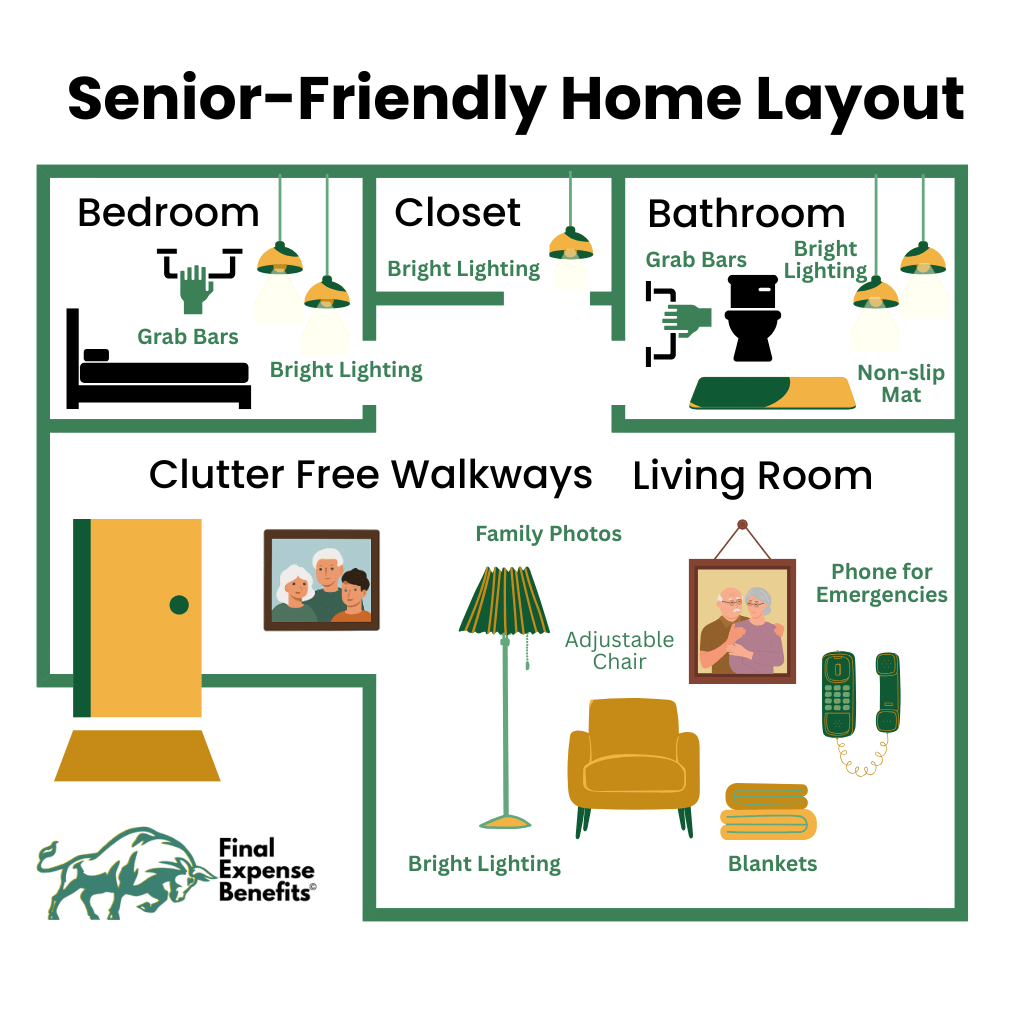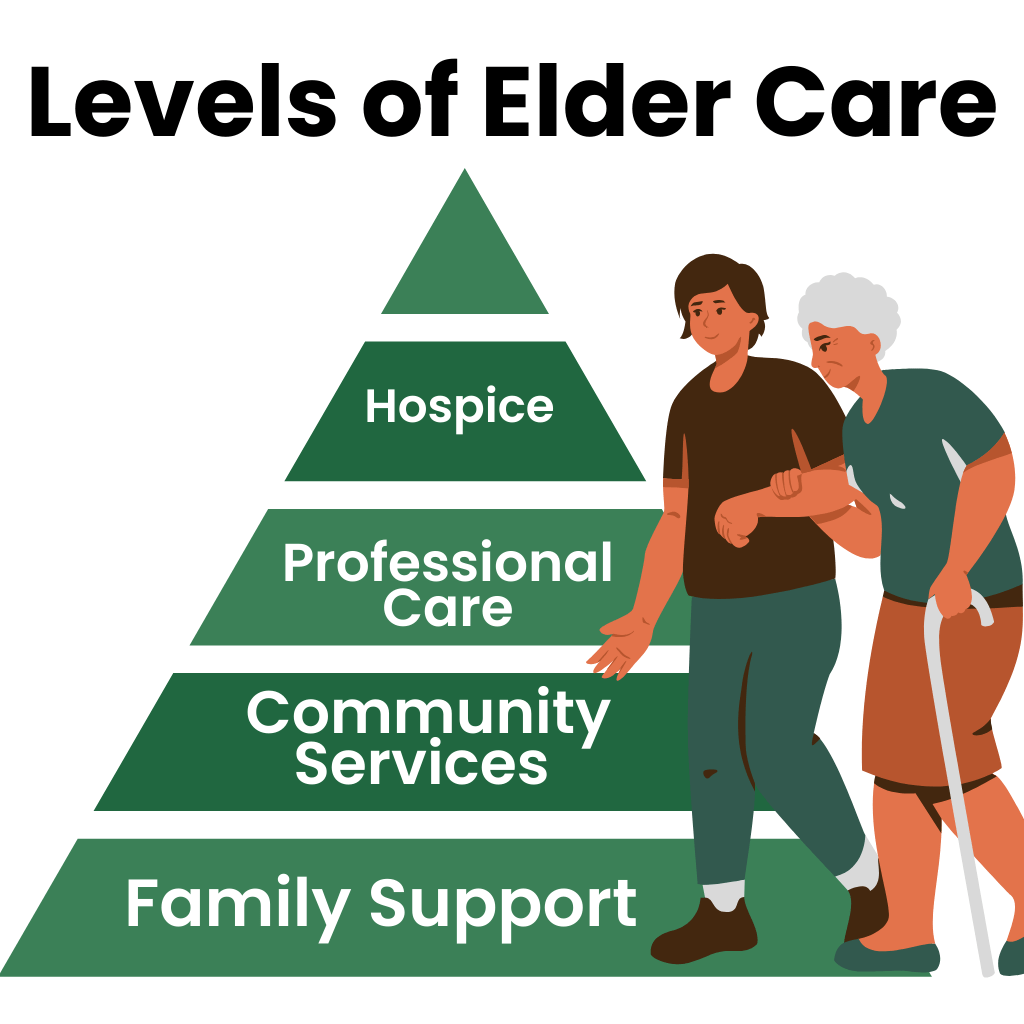
The Complete Guide to Elder Care Needs | Physical Health, Emotional Support & More
Updated on Apr 28, 2025 • 8 min read
As our loved ones age, their needs become more complex. Meeting their needs is one of the most meaningful responsibilities we can take on. Elder care isn’t just about physical support; it’s also about providing emotional security, a safe environment, and peace of mind. Whether you’re just starting your caregiving journey or facing growing challenges, this guide helps you understand what elder care means and how to navigate it with compassion and confidence.
Interested in any of our life insurance options? Call Final Expense Benefits at (866) 786-0725 to learn more. Be sure to check our free online quoting tool for personalized pricing estimates.
Why Elder Care Matters
Elder care encompasses a wide range of responsibilities that extend beyond physical assistance. This part of the guide highlights the emotional rewards, health benefits, and meaningful connections that come with caring for aging loved ones. It’s not just about what you do, it’s about how your presence makes them feel safe, seen, and supported. To provide truly holistic care, it’s important to understand both the physical challenges aging parents face and the emotional support they need to thrive.
Physical, emotional, and family benefits
Supporting aging parents creates a meaningful opportunity to reconnect, reflect, and strengthen your family bond. Elder care nurtures not only physical health but also emotional well-being and a sense of purpose, helping loved ones feel seen, valued, and respected in this stage of life.
The value of proactive support in elder care
Being proactive in elder care by anticipating needs, establishing routines, and staying informed helps prevent crises and improves overall quality of life. Early planning means fewer surprises and more time focused on comfort, joy, and connection.
Core Needs of Elder Parents
Meeting the needs of aging parents involves understanding both their physical health and emotional well-being. Let’s take a closer look at the most common challenges and explore compassionate ways to address them.
Physical, Physical & medical needs , and family benefits
Many seniors face chronic conditions like cancer, epilepsy, dementia, high blood pressure, COPD, or stroke recovery. By managing these conditions through proper medication, exercise, and regular healthcare visits, elders are given a better chance to be in their best health. According to the National Institute on Aging, ongoing checkups, screenings, and lifestyle support are key to aging well.
Emotional and social support
Mental well-being is just as important as physical health. Loneliness, depression, and cognitive decline are common, but they don’t have to be inevitable. Encouraging social interaction through hobbies, phone calls, or group activities helps aging parents feel engaged and valued. Even teaching simple technology like video calls or photo sharing can make a huge emotional impact.
Call Final Expense Benefits at (866) 786-0725 as your loved one’s care needs evolve. Check our free funeral expense calculator for a clear, itemized view of funeral costs based on your preferences.
Legal and Financial Considerations
Organizing Finances for Elder Care
Planning for elder care isn’t just about daily needs, it’s also about ensuring long-term financial stability and legal protection. That includes healthcare, home modifications, medications, and long-term care. It’s also wise to review estate plans, legal documentation, and insurance. One option to reduce financial stress later is to know what type of service your loved one is planning. Final Expense Insurance can help cover funeral costs, including a cremation, burial, or other type, so families aren’t left with debt.
Creating a Safe and Comfortable Home
As mobility and independence shift with age, the home environment should adapt too. This section looks at safety upgrades and comforting design changes that help seniors thrive at home.
Home Modifications for Safety
Making small changes around the house can prevent accidents and preserve independence. Install grab bars in bathrooms, use non-slip mats, add better lighting in hallways and stairs, and clear walkways to reduce fall risk. These simple modifications can make daily life significantly safer.
Comfort & Accessibility Enhancements
Supportive seating, organized spaces, and furniture that’s easy to get in and out of can all make a home more livable. Personalized touches like family photos and favorite blankets help maintain a sense of comfort and emotional security.
Managing Daily Care Tasks
From hygiene to healthcare appointments, daily caregiving involves a blend of organization and empathy. Let’s break down some of the most common care tasks and how to manage them with dignity and structure.
Medication Management
Keeping track of multiple prescriptions can quickly become overwhelming for both seniors and their caregivers. Establishing a consistent medication routine helps reduce missed doses, prevent medication errors, and support overall health. Tools like pill organizers, daily alarms, and medication tracking apps can make the process more manageable and less stressful. By building medication management into the daily caregiving rhythm, you create a safer and more predictable environment for your loved one.
Personal Hygiene and Grooming Support
Assisting with bathing, grooming, and dressing is often an important part of elder care, but it requires sensitivity and patience. Taking the time to move slowly, explain each step, and use adaptive tools can help your loved one feel more comfortable and in control. With the right approach, these daily routines can become moments of trust, reassurance, and dignity. Prioritizing comfort and communication throughout the process helps preserve your loved one’s sense of independence and self-respect.
Meal Prep & Nutrition
Meal prep doesn’t need to be complicated. Focus on well-balanced, nutrient-rich meals and plenty of water throughout the day. Small snacks like fruits or yogurt can help maintain energy and hydration.
Appointment Coordination
Managing appointments can feel like a full-time job. Keeping a calendar, setting reminders, and arranging transportation are all important parts of ensuring your loved one receives timely, appropriate care.
Call Final Expense Benefits at (866) 786-0725 as your loved one’s care needs evolve. Check our free funeral expense calculator for a clear, itemized view of funeral costs based on your preferences.
When to Seek Outside Help for Elder Care
Caregiving is demanding, and your well-being matters just as much as your loved one’s. Taking care of yourself isn’t selfish; it’s essential to sustaining the energy, patience, and compassion caregiving requires. In this section, you’ll learn practical ways to protect your mental health and build a rhythm that supports both you and your aging parent. By finding balance, you can continue providing loving care without losing sight of your own needs.
Phases of Care for Aging Loved Ones
As our loved ones age, their needs often change gradually, and so should the level of care they receive. Elder care isn’t one-size-fits-all. It ranges from minimal assistance with daily activities to full-time medical support, depending on a person’s health, mobility, and personal preferences. Understanding these different levels of elder care can help families make thoughtful decisions that prioritize both independence and safety.
In the early stages, many seniors only require light support, such as help with grocery shopping, minor home modifications, or occasional transportation to appointments. This level of care allows older adults to maintain their independence while providing peace of mind to family members. As needs grow, in-home health aides, adult day programs, or assisted living facilities can offer more structured daily assistance with activities like bathing, dressing, medication management, and meals.
Needing Hospice or Respite Care
For seniors facing significant medical challenges or nearing the end of life, more intensive care options become necessary. Skilled nursing facilities, palliative care, and hospice services provide around-the-clock medical support, pain management, and emotional care tailored to the patient’s comfort and dignity. Each level of elder care serves a vital role in ensuring that aging adults are supported through every phase of their journey with compassion, respect, and proper planning.
No matter what stage of elder care your loved one is in, preparing for end-of-life costs can lift a heavy burden off your family. Learn how Final Expense Benefits can help you honor their wishes with dignity and financial security.
Caregiver Support and Self-Care
Caregiving is demanding, and your well-being matters just as much as your loved one’s. Taking care of yourself isn’t selfish; it’s essential to sustaining the energy, patience, and compassion caregiving requires. In this section, you’ll learn practical ways to protect your mental health and build a rhythm that supports both you and your aging parent. By finding balance, you can continue providing loving care without losing sight of your own needs.
Importance of Mental Health for Caregivers
Caring for someone else starts with caring for yourself. Your mental health affects how you show up, how you make decisions, and how you sustain the long-term caregiving journey. Caregiving is a marathon, not a sprint. You can explore local elder care services and caregiver support options through the U.S. Administration for Community Living’s Eldercare Locator.
Managing Stress and Burnout
When caregiving affects your health, career, or emotional state, or when your loved one’s needs become too complex, it’s time to seek support. No one can do it alone; professional help doesn’t mean giving up. It means giving the best care possible. Recognize the early signs: fatigue, irritability, and detachment. Address them before they escalate by checking in with yourself regularly. Set boundaries, accept help, and communicate openly with your support system.
Preparing for end-of-life costs can lift a heavy burden off your family. Learn how Final Expense Benefits can help you honor their wishes with dignity and financial security.
Conclusion
Elder care can be demanding, but it’s also one of the most meaningful ways to show love. Caring for aging parents is a deeply personal and profound responsibility. It takes patience, love, and resilience, rewarding you with connection, gratitude, and growth. While every situation is unique, one truth remains: your presence matters. Seek support, educate yourself, and remember that you’re not alone.
Call us at (866) 786-0725 every weekday from 9 a.m. to 5 p.m. to discover the best prices on final expense insurance, or use our free quoting tool to start comparing policies today.
FAQ
What is elder care?
Elder care refers to a broad range of services designed to support the physical, emotional, and practical needs of aging adults. This includes everything from assistance with daily tasks and medical care to providing companionship and planning for future needs.
When should I consider professional help for my aging parent?
If your loved one’s care becomes too demanding, their health declines rapidly, or you’re experiencing caregiver burnout, it might be time to explore professional help. Options range from in-home aides and adult day programs to long-term care and hospice.
How can I make my parents’ home safer?
Small changes can make a big difference. Start by removing tripping hazards, installing grab bars and non-slip mats, improving lighting, and arranging furniture for easy mobility. These adjustments help prevent falls and promote independence.
What resources are available for family caregivers?
There are many community and online resources for caregivers, including respite care, support groups, local agencies on aging, and government programs such as those offered by the Administration for Community Living.
What is final expense insurance, and do we need it?
Final expense insurance helps cover funeral and burial costs so your family isn’t left with an unexpected financial burden. It’s often easier to qualify for than traditional life insurance and provides peace of mind during an already emotional time.







